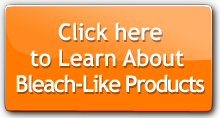Q&A: Bleach Baths for Eczema?
Q: I’ve heard that baths with diluted bleach can successfully treat kids with eczema. Is this true?
A: Common household bleach (sodium hypochlorite) is best known as the product that “makes whites whiter,” but diluted bleach has also been used as a dental antiseptic and, in certain forms, as a wound disinfectant. Given the common perception of bleach as an irritant, one would think that bathing in it would be harmful, but clinical trials have actually proven this treatment to be very effective.
Evidence suggests that this therapy has been used for quite some time. In one of the first formal studies, conducted at Northwestern University’s Feinberg School of Medicine, 31 children between the ages of 6 months and 17 years suffering from moderate to severe eczema were treated. Additionally, the children had signs that indicated they had some form of bacterial infection that aggravated their condition.
Half of the patients bathed in a tub of water diluted with household bleach twice a week, and the other half took baths without bleach twice a week. The bleach baths used one-half cup of 6% bleach in an average-size bathtub that was full of water (40 gallons). The final concentration of bleach to water was .005%. All patients also took an oral antibiotic (cephalexin) and had mupirocin ointment applied in their noses. Additionally, all patients were instructed to use anti-inflammatories and emollients as they normally would.
After 3 months of treatment, the children who took the bleach baths had a dramatic reduction in the severity of their eczema, 5 times greater than those who took the placebo baths. No patients withdrew from the study because of intolerance to the baths; however, one patient who received the bleach baths reported skin irritation and itching. That patient dropped out of the study and then developed a multidrug-resistant Staphylococcus aureus skin infection (commonly known as a staph infection) that resulted in hospitalization and IV antibiotics. After discharge from the hospital, the patient started bleach baths again and had no adverse effects.
Part of the reason the bleach bath therapy may be so effective is that 9 out of 10 people with eczema have S. aureus on their skin, including some with methicillin-resistant S. aureus (MRSA). Only about 2 out of 10 people in the gener al population do. Frequent scratching by eczema sufferers breaks the skin, which increases the likelihood of S. aureus causing an infection. The diluted bleach helps to kill the microbes that cause these infections.
What is so extraordinary about this treatment is that it is not an expensive topical cream or new drug. For a few cents’ worth of household bleach, patients showed remarkable results comparable to more sophisticated and expensive medical treatment. For those with very sensitive skin, it is advisable to rinse off in the shower after a bleach bath.
While this may not be good news for pharmaceutical companies, it certainly is for eczema sufferers. I now routinely recommend bleach baths to my patients with moderate to severe eczema in addition to regular gentle skin care and appropriate medication as needed. However, as with all treatments, people respond differently, so be sure to consult with your dermatologist before trying this therapy.
References: Huang JT, Abrams M, Tlougan B, Rademaker A, Paller AS. Treatment of Staphylococcus aureus colonization in atopic dermatitis decreases disease severity. Pediatrics . 2009 May;123(5):e808–14.
Insights from Dr. Ramsey Markus (/info/users/rmarkus)
on July 23, 2009
Original article at: http://www.skinsight.com/info/blog/2009/07/23/qa-bleach-baths-eczema
Q&A: Bleach Baths for Eczema? | skinsight 7/13/11 11:19 AM


